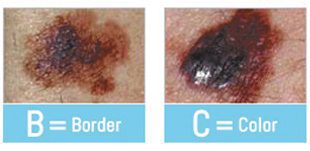

How effective is cancer treatment today?
According to the American Cancer Society, there are more than 17 million Americans with a history of cancer who are alive today, and most oncologists feel that many types of cancer are becoming more like a chronic disease, such as diabetes or hypertension. In other words, even though no cure has been found for every type of cancer, often the disease is something that can be managed, and people can live with cancer for many years.
Through research, we have learned that each person’s cancer is actually a unique disease because every tumor or malignancy has its own distinctive DNA. This discovery has resulted in many new and highly effective treatments that are based on a patient’s unique genetic profile. Genetic sequencing of a patient’s tumor can help identify which drugs or treatments will be most effective for that individual.
Early detection and diagnosis, as well as advances, such as immunotherapies and targeted treatments, most of which are available in pill form, are also making it possible to live with cancer and continue to have a good quality of life. Further, the development of secondary medications to manage side effects, such as nausea or fatigue, has helped improve the sense of well-being in patients.
Impact of COVID-19 on people living with cancer
As difficult as it has been for all of us for almost two years, cancer patients have been particularly affected by the coronavirus pandemic. Cancer patients are especially vulnerable when it comes to contracting COVID-19 because cancer itself and the treatments for the disease can weaken the immune system. In addition, the pandemic has brought about numerous consequences, including reduced access in getting care for other illnesses, according to the Centers for Disease Control (CDC).
At the beginning of the pandemic, certain non-urgent health care was suspended and many people either delayed or skipped getting their
recommended cancer screenings, fearing exposure to COVID-19. Postponing cancer screenings led to delays in diagnosing cancer at an early stage when it is more treatable. That is one reason physicians are now encouraging patients not to skip their recommended cancer screenings. Early detection can often mean a much better outcome for patients.
Clinical trials for cancer have also been affected by the pandemic. Up to 60% of research programs halted screenings or enrollment for clinical trials in the first few months of COVID-19, according to the National Institutes of Health (NIH). This interruption in clinical research may delay some of the newer promising treatments from being studied and potentially approved.
Now that three COVID-19 vaccines have been approved for use in the U.S., the risk of contracting serious illness or being hospitalized with coronavirus is much reduced for those who are vaccinated. The American Cancer Society also reports that medical experts are recommending that most people with cancer or a history of cancer should get the vaccine. The vaccine is safe for people with cancer, although it might be less effective because some cancer treatments can affect the immune system and render the vaccine less effective. People who are still in active treatment for cancer should talk with their physician for more information.
Cancer Specialists
For more information, visit FLCancer.com
North Port
1390 Grand Venture Drive
North Port, FL 34286
Port Charlotte
22395 Edgewater Drive
Port Charlotte, FL 33980
Venice Island
901 South Tamiami Trail
Venice, FL 34285
Venice Healthpark
836 Sunset Lake Blvd,
Suite 101
Venice, FL 34292
Englewood
714 Doctors Drive
Englewood, FL 34223
 Southwest Florida's Health and Wellness Magazine Health and Wellness Articles
Southwest Florida's Health and Wellness Magazine Health and Wellness Articles

